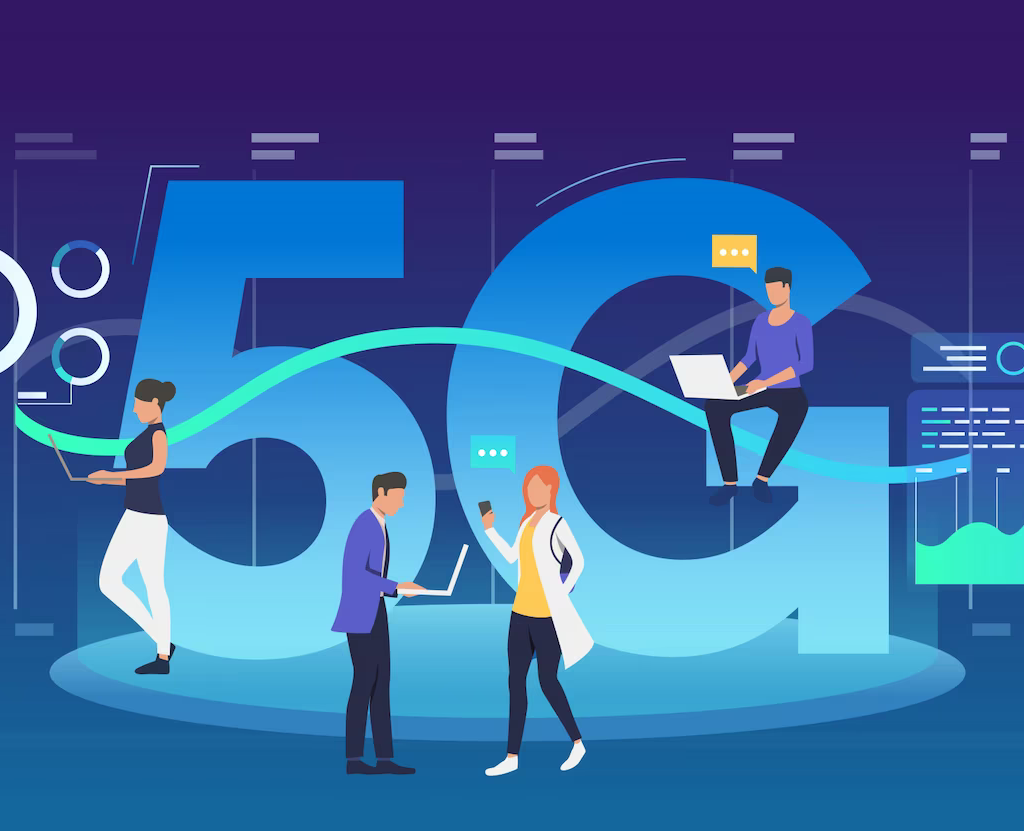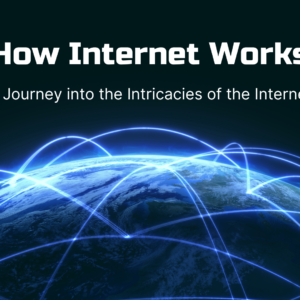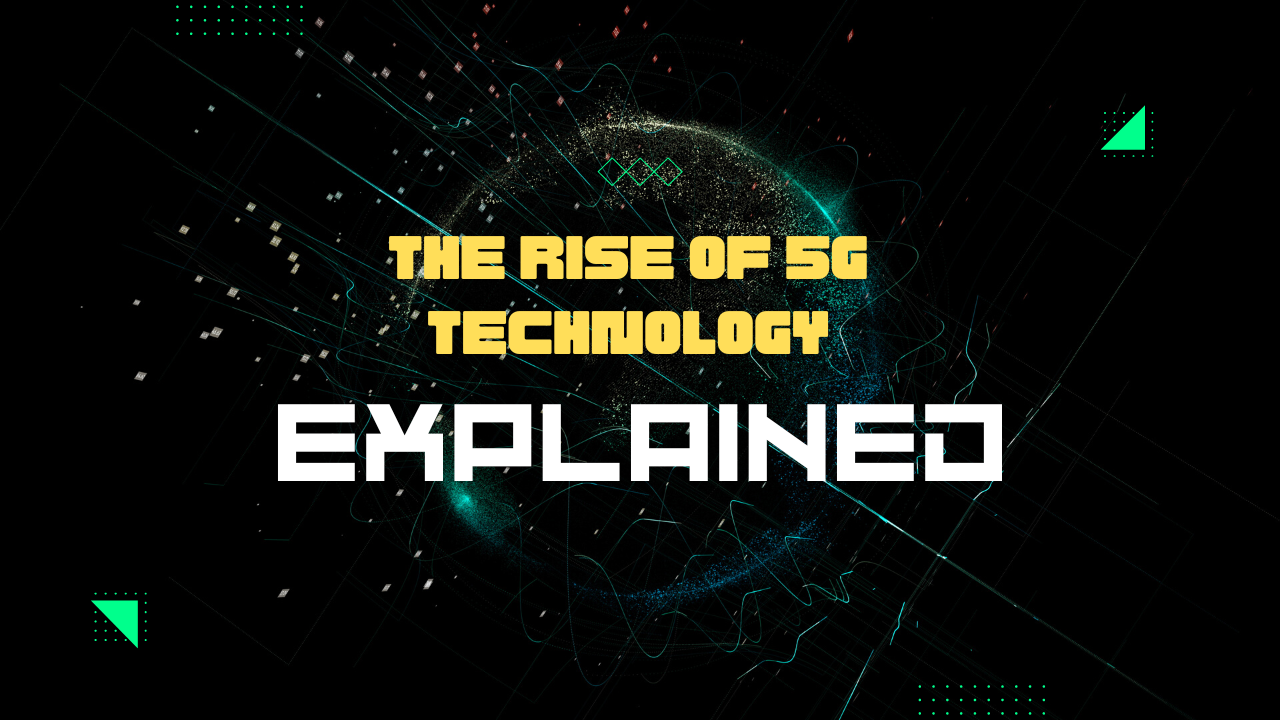
Introduction
In recent years, the proliferation of 5G technology in the communication industry has been a game changer. The rise of this technology has important implications for communication and connect.
Brief explanation of 5G
The term “5G” refers to the fifth generation of wireless communication technology. 5G is a significant evolution from its predecessor 4G, and represents an important development in the field.
Importance of 5G
The rise of 5G technology promises improved communication and connectivity, with faster speeds, improved reliability, and greater network capacity. This has the potential to change the way we communicate and interact with the world around us.
Historical background of 5G
The development of 5G technology began in the early 2010s, and various companies and organizations have been working to develop the technology ever since.
Understanding 5G Technology
Definition of 5G
5G is a wireless communication technology that promises faster speeds, better reliability, and greater network capacity than its predecessor 4G.
Differences between 5G and 4G
5G is a significant evolution from 4G, with improvements in data speeds, capacity, and reliability.
How 5G works
5G technology uses a variety of advanced technologies such as beamforming, MIMO, and millimeter waves to improve data transmission speeds.
Advantages of 5G over 4G
5G offers several important advantages over 4G, including greater speed, network reliability, capacity, and lower latency.
The Impact of 5G Technology on Communication
Faster data speeds
5G technology promises faster data speeds, which have important implications for communication, entertainment, and information access.
Improved voice and video calls
With 5G, voice and video calls have the potential to be clearer, more reliable, and more consistent than ever before.
Increased network reliability
5G technology promises improved reliability over its predecessor 4G, which has important implications for business, government, and emergency services.
Reduced latency
5G technology has significantly lower latency than 4G, promising improved performance in applications that require quick response times, such as gaming and virtual reality.
Greater network capacity
5G technology promises greater network capacity than 4G, which could allow for new applications such as remote surgery, autonomous vehicles, and smart cities to become a reality.
The Benefits of 5G Technology for Connectivity
Seamless connectivity
5G technology promises seamless connectivity, with fewer gaps in coverage and better access to information and services.
Enhanced IoT capabilities
5G technology has the potential to significantly enhance the capabilities of the IoT (Internet of Things), enabling new applications such as smart homes and smart cities to become a reality.
Benefits for autonomous vehicles
5G technology promises to enable more reliable and secure communication between autonomous vehicles and other devices, which could significantly improve the safety and efficiency of autonomous vehicles.
Advantages for smart cities
5G technology has the potential to significantly improve the way cities operate, with improved traffic management, public safety, and environmental monitoring.
Potential for remote work
With the greater speed and reliability of 5G technology, remote work becomes more feasible and practical, with the potential to improve work-life balance and reduce congestion in cities.
Deployment of 5G Technology
Current state of 5G deployment
5G technology is currently being deployed in many countries around the world, with major cities and urban centers often being the first to receive the technology.
The challenges in deploying 5G
The deployment of 5G technology presents several challenges, including costs, technological complexity, and the need for infrastructure upgrades.
Future prospects of 5G deployment
The widespread deployment of 5G technology is likely to take some time, but industry experts predict that it will ultimately become the standard for wireless communication and connectivity.
Obstacles to 5G deployment
There are several obstacles to the widespread deployment of 5G technology, including regulatory hurdles, public perceptions of the technology, and concerns over privacy and security.
Concerns over 5G Technology
Radiation concerns
Some researchers and activists have expressed concerns over the radiation emitted by 5G technology and its potential impact on human health.
Security risks
5G technology presents new security risks, such as the potential for hacking and data breaches, which will need to be addressed as the technology becomes more widespread.
Potential for job displacement
The rise of 5G technology could lead to job displacement in certain industries, such as retail and transportation, as automation and artificial intelligence become more prevalent.
Ethical implications
The rise of 5G technology raises important ethical questions, such as the potential for increased surveillance and the impact of automation on human labor.
The Business Opportunities of 5G Technology
Economic impact of 5G
The rise of 5G technology has significant implications for the economy, with the potential to create new jobs and drive economic growth.
Opportunities for small businesses
5G technology presents opportunities for small businesses to reach customers more effectively, expand their markets and improve their supply chain management.
Revenue potential for service providers
Service providers have the potential to generate significant revenue from 5G technology through the provision of improved services and applications.
Potential benefits for the advertising industry
5G technology has the potential to significantly improve the effectiveness of advertising, with greater targeting and personalization of ads.
The Future of 5G Technology
Innovations in 5G technology
Innovations in 5G technology are likely to continue, with new applications and devices becoming available as the technology becomes more widespread.
Integration with other technologies
5G technology is likely to become increasingly integrated with other technologies, such as artificial intelligence and virtual reality, offering new possibilities for communication and connectivity.
Predictions for 5G by industry experts
Industry experts predict that 5G technology will become the standard for wireless communication and connectivity, with significant benefits for businesses, governments, and individuals.
Conclusion
The rise of 5G technology promises improved communication and connectivity, with greater speed, reliability, and capacity, as well as new opportunities for businesses and individuals. However, there are also important concerns and challenges associated with the widespread deployment of 5G technology
Recap of the importance of 5G technology
5G technology is important for its improvements in communication and connectivity, with implications for businesses, governments, and individuals.
Potential impact on communication and connectivity
5G technology promises significant improvements in communication and connectivity, offering faster speeds, improved reliability and greater capacity.
Final thoughts
The widespread deployment of 5G technology is likely to take some time, but it promises to improve the way we communicate and interact with the world around us.
Do you want to master the art of digital marketing? Click here to know more!!
Blogs and Articles related to digital marketing, click here to know more.




